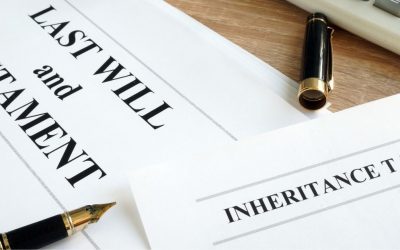Wills and Trusts
What is a Will and why is it important?
A Will is a powerful legal document that ensures your estate is passed on according to your wishes after death. Without a valid Will, the law decides who inherits — which may not reflect your intentions and can create stress for your family.
Reasons people make a Will
-
Appoint guardians for children – Parents often write a Will to make sure children under 18 are cared for by trusted guardians, avoiding the risk of foster care.
- Control what is important – A Will ensures your estate is looked after by the people you choose and how and when your family inherit.
-
Safeguard family assets – A Will can protect your legacy from being lost to care fees, misuse, or remarriage. Without careful planning, assets may end up in the wrong hands.
-
Avoid disputes and delays – Setting out your wishes clearly reduces family conflict and makes probate easier.
Plan your Will with expert guidance
At Moneybox Wills and Trusts, we make Will writing simple, secure, and tailored to your needs. Our complimentary advice service helps you understand your options and ensure your Will protects the people who matter most. Book your free consultation today for peace of mind

Need any further help?
Arrange a FREE 30 min consultation with a qualified advisor.
Property Protection Trusts
How can using Trusts in your Will help safeguard your assets for future generations?
A Property Protection Trust in your Will ensures your share of the family home is passed on securely, rather than being lost to care fees, remarriage, or outside claims. By writing your share into Trust, you can protect half (or all) of the home while still allowing your spouse to live there for life.
Protecting your home from care fees and remarriage
Many people want their property to go to their children, not be sold to pay for long-term care or passed to a new partner if the surviving spouse remarries. With a Property Protection Trust, your share of the home is ring-fenced and safeguarded for your chosen beneficiaries.
How it works
By changing ownership to “tenants in common,” each partner can leave their share to children (directly or via a trust). This means that portion cannot be used to fund care or pass outside the family.
Why a Trust adds extra security
Adding a “life interest” (also called an “interest in possession” trust) lets the surviving spouse remain in the home for life, while guaranteeing your share ultimately passes to the children. It prevents pressure from family members or outsiders to sell the property early.
Safeguard your family home today
At Moneybox Wills and Trusts, we specialise in creating Wills and Trusts that protect your home and wealth for the next generation. Book a free consultation today to see how a Property Protection Trust can give you peace of mind and long-term security.
Discretionary Trusts
How can a Discretionary Trust protect your family and estate?
A Discretionary Trust allows you to set aside assets in your Will that your trustees can manage flexibly for the benefit of your chosen beneficiaries. This type of trust is particularly useful when you want to protect wealth for future generations but allow trustees to make decisions about when and how those funds are used.
Protecting against risks
A Discretionary Trust helps safeguard your estate from issues such as divorce, bankruptcy, or poor money management by beneficiaries. Instead of assets passing directly, trustees decide how much support to provide and when, ensuring money is used wisely and for genuine needs.
Supporting vulnerable or younger beneficiaries
These trusts are also ideal if you have young children, grandchildren, or vulnerable family members. Trustees can release funds for education, healthcare, or living costs, without giving full control of the inheritance too soon.
Flexibility for changing family circumstances
Family situations change — marriages, divorces, or financial challenges. A Discretionary Trust gives your trustees the power to adapt, making sure your legacy continues to provide security even if circumstances shift.
Plan with confidence
At Moneybox Wills and Trusts, we design Discretionary Trusts that protect your wealth while giving flexibility for your loved ones. Speak to our team today to find out how this type of trust can secure your estate and give your family peace of mind
Book your Free Consultation Today
Our Estate Planning Services
ADVICE CENTRE
Information and resources
View our vault of articles, case studies and information to give you a deeper understanding of the subjects we can help you with.
What’s the Difference Between a Will and a Trust?
What’s the Difference Between a Will and a Trust? One of the most common conversations we have with clients at Moneybox Wills & Trusts starts with a simple question: “Do I need a Trust?” The confusion is completely understandable. Wills and Trusts are often talked...
Understanding Inheritance Tax Allowances: NRB vs RNRB
Understanding Inheritance Tax Allowances: NRB vs RNRB Inheritance Tax (IHT) is a concern for many families across the UK. With rising property values, more estates than ever are at risk of being taxed. For example, 2022/2023 the Treasury collected £6.7Billion from...






